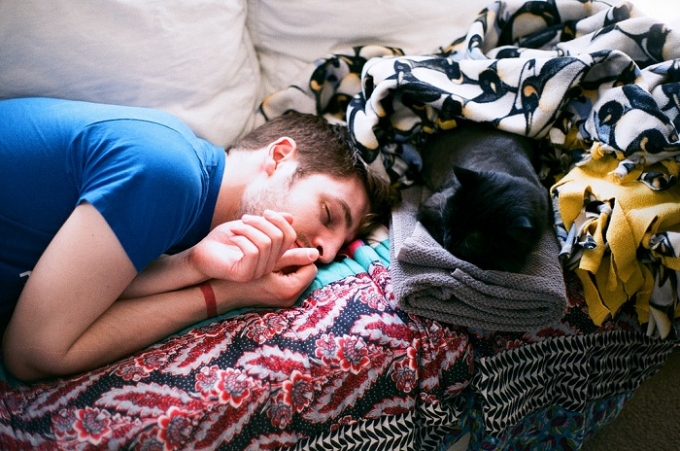-
Tips for becoming a good boxer - November 6, 2020
-
7 expert tips for making your hens night a memorable one - November 6, 2020
-
5 reasons to host your Christmas party on a cruise boat - November 6, 2020
-
What to do when you’re charged with a crime - November 6, 2020
-
Should you get one or multiple dogs? Here’s all you need to know - November 3, 2020
-
A Guide: How to Build Your Very Own Magic Mirror - February 14, 2019
-
Our Top Inspirational Baseball Stars - November 24, 2018
-
Five Tech Tools That Will Help You Turn Your Blog into a Business - November 24, 2018
-
How to Indulge on Vacation without Expanding Your Waist - November 9, 2018
-
5 Strategies for Businesses to Appeal to Today’s Increasingly Mobile-Crazed Customers - November 9, 2018
Sleep Apnea: Depression Reduced Via CPAP Therapy In Patients
Previous studies have suggested sleep apnea can raise the risk for depression if left untreated, and the condition has been linked to increased risk for high blood pressure, heart disease, stroke and type 2 diabetes.
Advertisement
In this latest study, Dr. David R. Hillman, clinical professor at the University of Western Australia, and colleagues set out to gain a better understanding of the prevalence of depressive symptoms among individuals with sleep apnea, and to investigate whether CPAP may be effective for reducing these symptoms.
The study involved 426 patients referred to a hospital sleep center for evaluation of suspected sleep apnea.
Researchers said that depression patients were asked about experiencing sleep apnea symptoms at the time of diagnosis and treatment.
CPAP or continuous positive airway pressure includes mild air pressure being delivered to the patient while they sleep, usually through a mask which helps keeps airways open. Depressive symptoms were assessed using the validated Patient Health Questionnaire (PHQ-9), and the presence of obstructive sleep apnea was determined objectively using overnight, in-lab polysomnography. The therapy was administered for at least five hours each night for three months.
Obstructive sleep apnea is a sleep disorder that typically features pauses in breathing, or at least infrequent breathing during sleep due to a constriction of the airway. In rare cases, sleep apnea can result in death during sleep.
The researchers further noticed that these symptoms also significantly improve when the underlying sleep apnea is addressed with the CPAP therapy.
As a result, it stands to reason why sleep apnea could be behind depression symptoms, as it can lead to a person feeling worn out and unwell throughout the day every single day, rather than refreshed.
Oftentimes, people who have sleep apnea don’t even realize it, unless they have a partner who sees that the person has stopped breathing and then resumes seconds or even minutes later. There is also central sleep apnea, which is more rare and is a problem with the respiratory system, and the third form is a combination of the two.
Sleep apnea takes on three forms, with obstructive sleep apnea being the most common at 84 percent of sufferers.
Advertisement
Sleep apnea should not be mistaken for depression, scientists say. But, the good news is that many people who think, they are depressed, may not be suffering from depression at all.





























